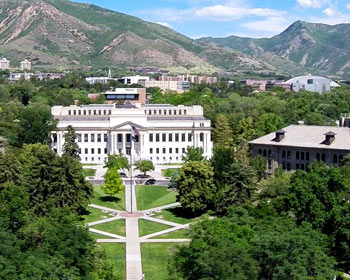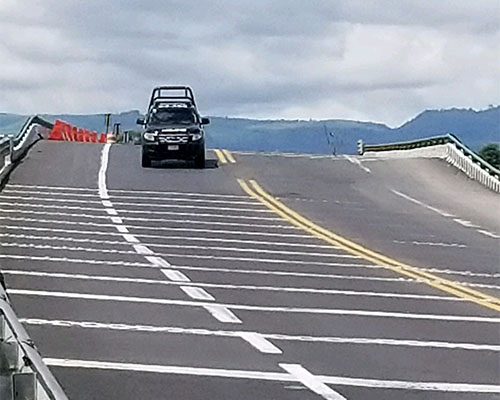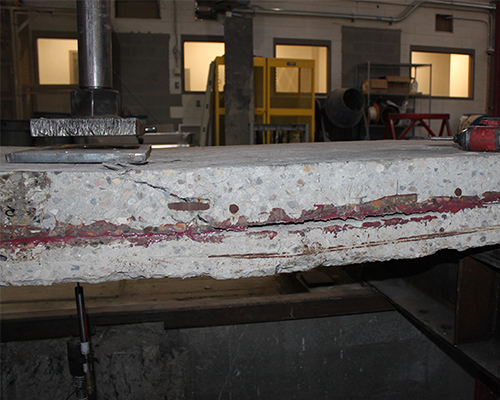MPC Region Info
University of Utah
 The University of Utah ranks among the top 100 universities in the world and the top 50 U.S. universities by total research expenditures. The Department of Civil and Environmental Engineering provides a diverse and challenging discipline that focuses on many aspects of the infrastructure of our society. Professional disciplines in the department include construction, environmental, geotechnics, materials, structures, transportation, and water resources. Masters and PhD degrees are offered to qualified students who want to pursue graduate studies. Students have opportunities to be involved in research related to a variety of transportation areas including asphalt pavements, fiber reinforced concrete, geotechnical and structural seismic bridge design, highway design, roadway maintenance, traffic safety, and transit. In addition to the Department of Civil and Environmental Engineering, the Departments of Geography and Psychology participate in MPC related research.
The University of Utah ranks among the top 100 universities in the world and the top 50 U.S. universities by total research expenditures. The Department of Civil and Environmental Engineering provides a diverse and challenging discipline that focuses on many aspects of the infrastructure of our society. Professional disciplines in the department include construction, environmental, geotechnics, materials, structures, transportation, and water resources. Masters and PhD degrees are offered to qualified students who want to pursue graduate studies. Students have opportunities to be involved in research related to a variety of transportation areas including asphalt pavements, fiber reinforced concrete, geotechnical and structural seismic bridge design, highway design, roadway maintenance, traffic safety, and transit. In addition to the Department of Civil and Environmental Engineering, the Departments of Geography and Psychology participate in MPC related research.

Final Report
Loading and Wetting-induced Settlement of Bridge Approach Embankment... (Jul 2024)
More Info | Research Brief

News Article
New Bridge Deck Repair Technique Will Cut Maintenance Costs While... (Dec 2024)
Full Article
University Labs / Resources
- Materials Laboratory - Department of Civil and Environmental Engineering: The Material Laboratories contain state of the art equipment for preparation and characterization of civil engineering materials including asphalt binder, asphalt concrete, Portland cement, and Portland cement concrete. The equipment includes specialized mixers, temperature and humidity control chambers, analytical sensors, mechanical testers, and chemical analysis devices. The research includes prediction of in-service performance and accelerated damage, incorporation of recycled materials to reduce the environmental and economic impact, and quality control methods used during construction.
- Structures Laboratory - Department of Civil and Environmental Engineering: The Structures Laboratory has the capability of performing monotonic and quasi-static cyclic loading of large specimens. The laboratory has a three-dimensional steel frame capable of testing components up to 16 ft high with 500 kips and a steel tower frame capable of testing components up to 20 ft high to a maximum load of 2,000 kips in compression and 1,500 kips in tension. In addition, the laboratory has a 16 ft drop hammer facility. These facilities are used to test bridge elements and components for gravity, seismic and dynamic impact forces.
- Utah Traffic Laboratory - Department of Civil and Environmental Engineering: The Utah Traffic Lab (UTL) is a University of Utah Advanced Transportation Systems facility. The research emphasis of UTL is Adaptive Traffic Signal Control Systems. They are interested in Intelligent Transportation Systems (ITS), Traffic Operations Research, and Innovative Transportation Solutions with a focus on application oriented research.
- Applied Cognition Laboratory – Department of Psychology: The laboratory has the capability to perform research regarding the influence of human factors on driving ability. It is equipped with a high-fidelity driving simulator, an instrumented vehicle, an eye tracker, and equipment for collecting physiological and behavioral measurements from the driver. Ongoing research projects are examining human interaction with advanced digital technology in the vehicle; specifically, how cognitive workload, distractions, and physiological measures affect driver behavior.
Department Information
Dept. of Civil and Environmental Engineering
University of Utah
110 Central Campus Drive, Suite 2000
Salt Lake City, UT 84112
Phone: (801)581-6931
Email: cveensupport@utah.edu

